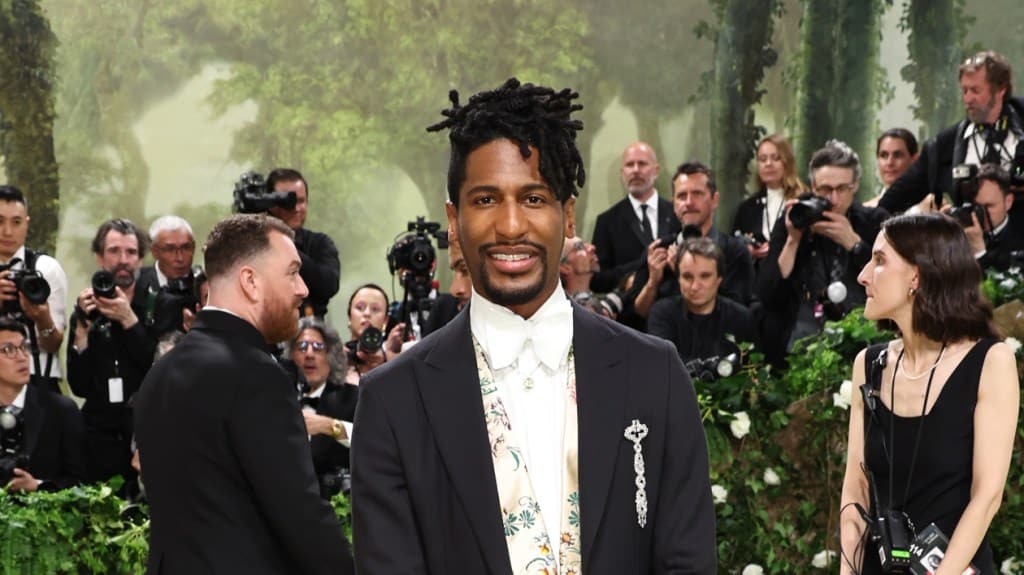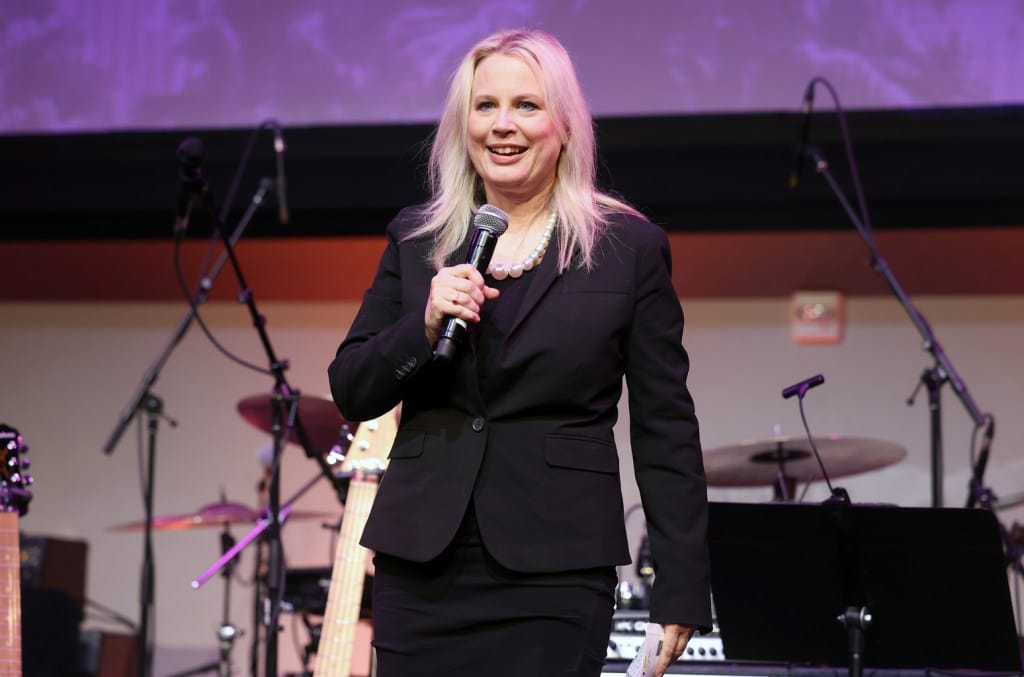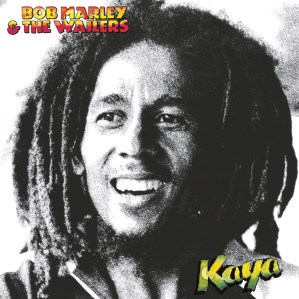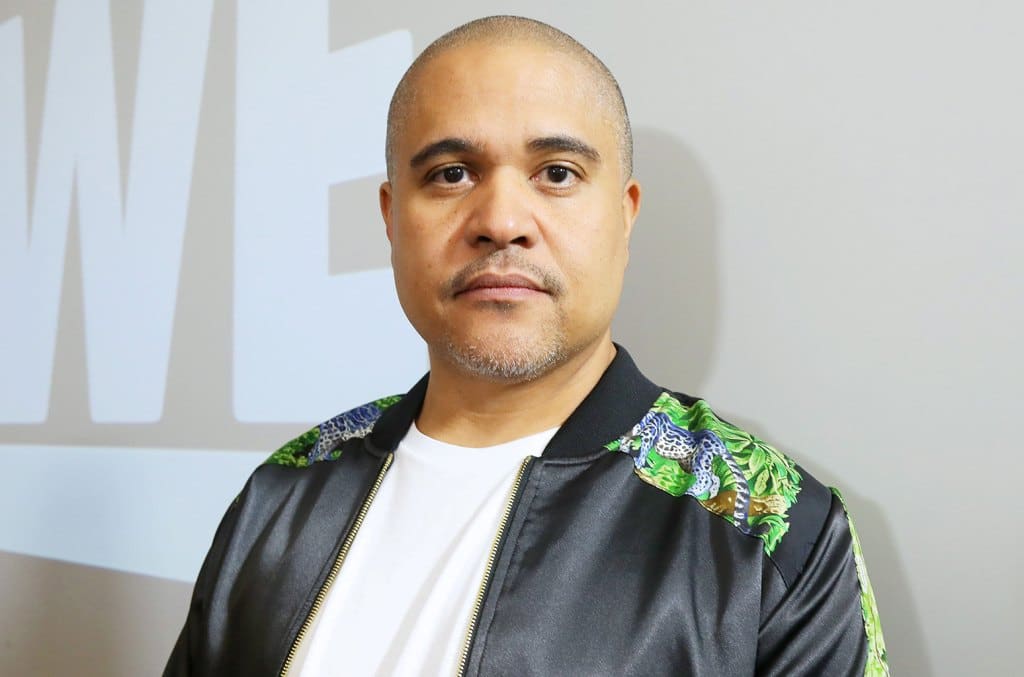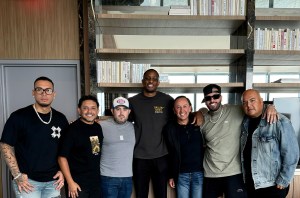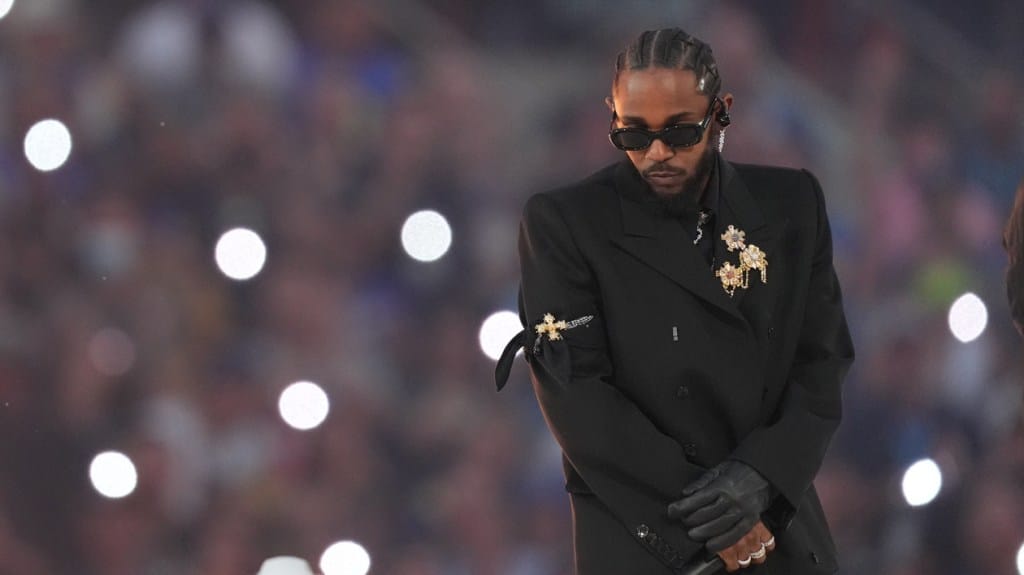breaking
Page: 4
Lyor Cohen, YouTube’s global head of music and the former president at Def Jam Recordings, head of Warner Music Group’s recorded music division and founder of 300 Entertainment, has penned an urgent open letter to Ye — formerly known as Kanye West — imploring him to stop using antisemitic rhetoric and other actions following a […]
The Weeknd lands his fifth No. 1 on the Billboard 200 albums chart with the debut of Hurry Up Tomorrow atop the tally (dated Feb. 15). The set earned 490,500 equivalent album units in the U.S. in the week ending Feb. 6, according to Luminate. That marks the largest week for any album since Taylor Swift’s The Tortured Poets Department debuted at No. 1 on the May 4, 2024-dated chart with 2.61 million. Hurry Up Tomorrow logs the biggest week for an R&B/hip-hop album since Travis Scott’s Utopia debuted at No. 1 on the Aug. 12, 2023, chart with 496,000.
Explore
Explore
See latest videos, charts and news
See latest videos, charts and news
The Weeknd previously topped the chart with After Hours (2020), My Dear Melancholy (2018), Starboy (2016) and Beauty Behind the Madness (2015).
Trending on Billboard
Also in the latest top 10, Chappell Roan’s The Rise and Fall of a Midwest Princess surges 14-6 following her best new artist win at the Grammy Awards (Feb. 2), while Billie Eilish’s Hit Me Hard and Soft (10-5) also climbs in the wake of Grammy exposure.
The Billboard 200 chart ranks the most popular albums of the week in the U.S. based on multi-metric consumption as measured in equivalent album units, compiled by Luminate. Units comprise album sales, track equivalent albums (TEA) and streaming equivalent albums (SEA). Each unit equals one album sale, or 10 individual tracks sold from an album, or 3,750 ad-supported or 1,250 paid/subscription on-demand official audio and video streams generated by songs from an album. The new Feb. 15, 2025-dated chart will be posted in full on Billboard‘s website on Feb. 11. For all chart news, follow @billboard and @billboardcharts on both X, formerly known as Twitter, and Instagram.
Of Hurry Up Tomorrow’s 490,500 first-week equivalent album units, album sales comprise 359,000 (it debuts at No. 1 on Top Album Sales), SEA units comprise 130,500 (equaling 171.5 million on-demand official streams of the songs on the streaming edition of the album; it debuts at No. 1 on Top Streaming Albums) and TEA units comprise 1,000.
Hurry Up Tomorrow’s launch of 490,500 units marks The Weeknd’s biggest week by units earned (since the chart began measuring in units in December 2014). The set’s sales of 359,000 claim The Weeknd’s largest sales week ever.
The set was released as a nine-song standard album, widely available through digital download retailers. It was alternatively available as an 11-song edition across all of its physical formats (CD, vinyl and cassette) and a 22-track digital download and streaming edition. It was also available in two further digital download editions, both exclusively sold via The Weeknd’s HurryUpTomorrow.Club site. Each sold for $4.99, boasted alternative cover art and had the 22 tracks available on the deluxe digital/streaming edition, but each had at least one additional track. One included “Closing Night,” with Swedish House Mafia. The other included “Runaway” and “Society,” which were also included on all of the physical formats, but not any of the other digital or streaming editions.
In total, the album generated 183,000 in digital album sales; 99,000 in CD sales; 77,000 in vinyl sales (The Weeknd’s best week on vinyl) and 1,000 in cassette sales.
Hurry Up Tomorrow’s first-week sales were aided by its availability across eight vinyl variants (including a signed edition), eight CD variants (including multiple signed editions), a cassette tape, and nine deluxe boxed sets containing a branded piece of clothing and a CD.
The album was preceded by the Billboard Hot 100-charting songs “Timeless” (with Playboi Carti, No. 3 peak last October) and “Sao Paulo” (with Anitta, No. 77 last November).
Bad Bunny’s Debí Tirar Más Fotos falls 1-2 on the Billboard 200 with 94,000 equivalent album units earned (down 20%). SZA’s chart-topping SOS slips 2-3 with 82,000 (down 6%), Kendrick Lamar’s GNX dips 3-4 with 65,000 (though up 9%) and Billie Eilish’s Hit Me Hard and Soft jumps 10-5 with 53,000 (up 47%).
Eilish was the first performer on the Feb. 2 Grammy Awards broadcast (on CBS), singing the album’s “Birds of a Feather.” Also on the show: The Weeknd performed (singing his new album’s “Cry for Me” and “Timeless,” with Playboi Carti), while SZA presented the best pop duo/group performance, and Lamar won two on-air trophies (for record of the year, and song of the year, both for “Not Like Us”).
Chappell Roan’s The Rise and Fall of a Midwest Princess surges 14-6 with a 56% gain — to 49,000 equivalent album units earned. The album vaults up the tally following Roan’s win for best new artist at the Grammys, along with her performance of the album’s “Pink Pony Club” on the show (and her buzzy acceptance speech which generated headlines).
Sabrina Carpenter’s former No. 1 Short n’ Sweet gaind 20% (up to 48,000 equivalent album units) but is pushed down a spot to No. 7. On the Grammy Awards, Carpenter won the best pop vocal album award, while also performing a medley of the album’s “Espresso” and “Please Please Please.” (She also won best pop solo performance for “Espresso,” but that category was presented before the television broadcast began.)
Morgan Wallen’s chart-topping One Thing at a Time drops 5-8 on the Billboard 200, despite an 11% gain (to 45,000 equivalent album units). Taylor Swift’s former No. 1 The Tortured Poets Department ascends 11-9 with 38,000 equivalent album units (up 8%) — also likely basking in some glow from the Grammy Awards, where the album and its “Fortnight” single were up for six awards (though did not win). Swift was a visible presence throughout the ceremony, cheering on winners and performers, and presented the best country album trophy to Beyoncé (for Cowboy Carter).
Rounding out the latest top 10 on the Billboard 200 is Gracie Abrams’ The Secret of Us, falling 8-10 with 36,000 equivalent album units earned (down 5%).
Luminate, the independent data provider to the Billboard charts, completes a thorough review of all data submissions used in compiling the weekly chart rankings. Luminate reviews and authenticates data. In partnership with Billboard, data deemed suspicious or unverifiable is removed, using established criteria, before final chart calculations are made and published.
Seven-time Grammy winner and Academy Award-winning artist Jon Batiste has signed with UTA for representation in all areas, the agency announced Thursday (Feb. 5) Batiste is also a composer and performer who has built a career spanning multiple genres and disciplines.
This Sunday (Feb. 9), Batiste is set to perform the national anthem at the 2025 Super Bowl in his hometown of New Orleans.
Batiste’s latest studio album Beethoven Blues, released in November via Verve Records/Interscope, blends Beethoven’s compositions with Batiste’s own approach to the piano. The album debuted at No. 1 on Billboard’s Classical Albums chart and held the top spot for five weeks. It also reached the top of the Classical Crossover Albums chart where it sat at the peak for 10 weeks.
Trending on Billboard
Batiste has earned seven top 10s on the Jazz Albums chart, including a No. 1 with 2014’s Social Music and 2018’s Hollywood Africans, which peaked at No. 2 and spent over six months on the chart. He’s also had three top 10s on the Adult Alternative Airplay chart, with 2021’s “I Need You” reaching No. 2. His song catalog (for tracks on which he is the lead performer) has registered 284.5 million official on-demand U.S. streams, according to Luminate.
Batiste received 11 Grammy nominations in 2022, eight for his album We Are and three for his music to the Pixar movie Soul. He is one of only five artists in Grammy history to receive 11 or more nominations in one year. His nominations were spread across six genre fields in addition to the General Field.
Batiste was the subject of Matthew Heineman’s 2023 documentary American Symphony, released on Netflix in partnership with production company Higher Ground. Batiste and Grammy winner Dan Wilson penned the emotional song “It Never Went Away” for the film, which earned an Oscar nomination for best original song in 2024. American Symphony also won best music film at this year’s Grammys, while a track featured in the film, “It Never Went Away,” won best song written for visual media.
A Juilliard graduate, Batiste served as the bandleader and musical director of The Late Show with Stephen Colbert from 2015 to 2022. His early Grammy recognition included a nomination for best American roots performance in 2018 for his rendition of “Saint James Infirmary Blues” and two nominations in 2020 for Chronology of a Dream: Live at the Village Vanguard and Meditations (with Cory Wong). In 2021, he won the Academy Award for best original score for Disney/Pixar’s Soul alongside Trent Reznor and Atticus Ross. In 2024, he also composed the score for Jason Reitman’s film Saturday Night live on-set during filming.
Batiste additionally runs his own company with an executive team led by Jonathan Azu, Dan Shulman, Ryan Lynn and ID PR.
Cindy Mabe, Universal Music Group Nashville’s chair/CEO, has left the company, Billboard has confirmed.
Mabe, whose reign lasted almost two years, was the successor to Mike Dungan, who retired in March 2023. Mabe became the first woman to lead a Nashville major label group. Country Aircheck first broke the news.
Mabe, who was 2019 Billboard’s Country Power Player executive of the year, had come out of the gate with ambitious plans that greatly broadened the scope of UMG Nashville’s remit, including an alliance with Cirque du Soleil, signing a number of acts that she introduced during a “Revival” that were left-of-center of mainstream country, launching a TV/film production company and, last month, reviving Lost Highway Records with T Bone Burnett.
The label is home to such acts as Chris Stapleton, Eric Church, Luke Bryan, George Strait, Carrie Underwood, Mickey Guyton, Little Big Town and The War and Treaty. Among its more recent successes were upstart Tucker Wetmore, who reached No. 2 on Billboard’s Country Airplay chart last year with “Wind Up Missin’ You,” and Ringo Starr, whose country album is the first release from Lost Highway/UMGN and debuted at No. 27 on Top Country Albums.
Trending on Billboard
In a January interview with Billboard about restarting Lost Highway, Mabe stressed focusing on artistry and lamented the loss of art in music as analytics have played a bigger role. “T Bone and I keep talking about the reason that we’re going to win is we’re going to put quality art back into the marketplace,” Mabe said. “It’s just missing. I’m not saying that there’s not some quality art out there, but it’s not always the goal. You don’t get artist development just by spinning the wheel and seeing how many ‘likes’ are out there. You actually have to make people feel something.”
Upon Mabe’s ascension from UMG Nashville president, she quickly made staffing changes, including the departures of the head of promotion, Royce Risser, and two heads of A&R, Brian Wright and Stephanie Wright, while bringing in Chelsea Blythe as executive vp of A&R. Blythe had been best known for her work with hip-hop artists at Def Jam, Columbia and Interscope. More recently, executive vp/COO Mike Harris left UMG Nashville in September.
UMG Nashville and UMG representatives did not immediately respond to requests for comment.
Among the gold gramophones handed out at the recent 67th Grammy Awards was one for best reggae album: Bob Marley: One Love — Music Inspired by the Film (Deluxe). Now in addition to the soundtrack and the global box office success of its accompanying 2024 biopic, the celebration of the reggae pioneer’s generational legacy continues in 2025 in honor of what would have been his 80th birthday (Feb. 6).
In partnership with the Marley family, Acoustic Sounds’ Analogue Productions label is announcing its reissue of seven of the late artist’s most iconic albums. With specific release dates to be announced, the album series will launch this spring and is centered around the theme of uprising — also the title of Marley’s last studio project released during his lifetime. Reflective of his spiritual and prophetic vision, the 1980 set includes memorable tracks such as “Redemption Song,” “Could You Be Loved” and “Pimper’s Paradise.”
The other six albums comprising the series are: 1973’s Catch a Fire (“Stir It Up,” “Concrete Jungle,” “Kinky Reggae”), 1973’s Burnin (“Get Up Stand Up,” “I Shot the Sheriff,” “Burnin’ & Lootin’”), 1974’s Natty Dread (“No Woman No Cry,” “Them Belly Full [But We Hungry],” “Lively Up Yourself”), 1976’s Rastaman Vibration (“Roots Rock Reggae,” “War,” “Rat Race”), 1977’s Exodus (“Three Little Birds,” “Jamming,” “One Love”) and 1978’s Kaya (“Is This Love,” “Satisfy My Soul,” “Easy Skanking”).
Trending on Billboard
Bob Marley, ‘Kaya’
Acoustic Sounds is reissuing the albums in a number of deluxe configurations, varying by title: 33rpm UHQR (ultra high quality record), 45rpm UHQR, 2LP 45rpm, SACD (super audio CD) and reel-to-reel tape (15 IPS on 1/4-inch tape). The UHQR and 2LP 45rpm releases will be sourced from the original master tapes and mastered by Ryan Smith at Sterling Sound. Pressing will be handled by Acoustic Sounds’ Quality Record Pressing plant in Salina, Kansas.
“We’re honored to be working with the Marley Family to give these records the treatment they deserve,” said Acoustic Sounds founder Chad Kassem in a statement. “The experience of going to Jamaica, visiting Tuff Gong and meeting the people carrying Bob Marley’s legacy forward was incredible, and we believe this series is a beautiful tribute to one of music’s greatest innovators.”
More about Kassem’s time in Jamaica and the making of Uprising can be found HERE. Acoustic Sounds’ recent vinyl releases include Steely Dan’s 1970s recordings, Buena Vista Social Club’s self-titled album and Miles Davis’ Birth of the Blue.
Warner Music Group is buying a controlling stake in Tempo Music Investment, a catalog company that owns rights to songs by Wiz Khalifa, Florida Georgia Line and Brett James, in a deal sources say is worth around $450 million. WMG said it will acquire the stake from Tempo’s founder, Providence Equity Partners. Providence will remain a […]
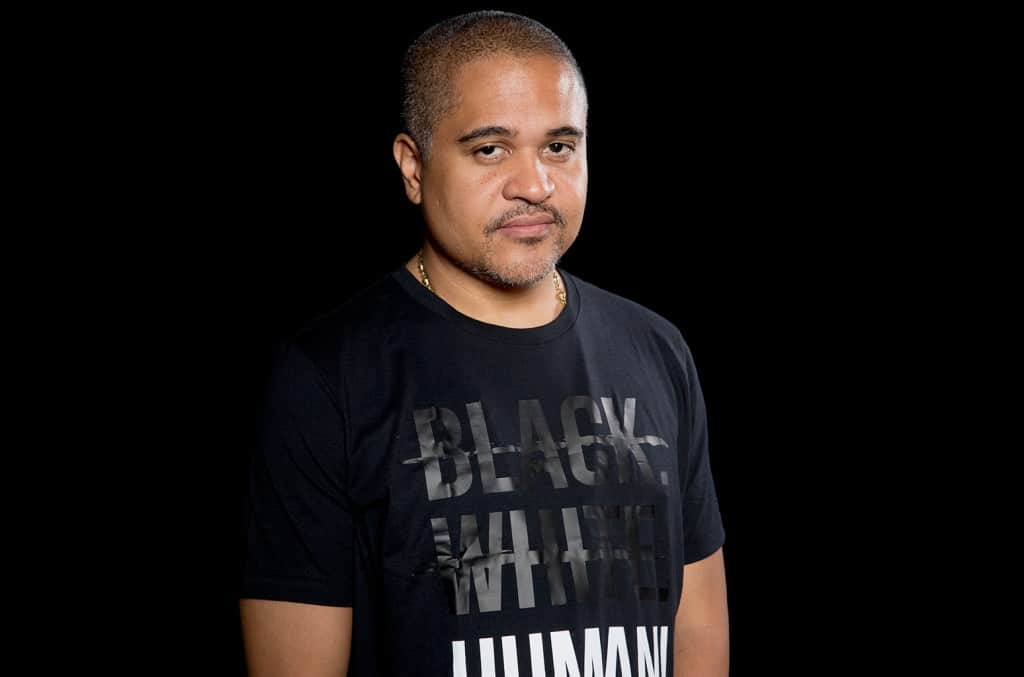
After news broke of the death of Murder Inc. Records co-founder Irv Gotti on Wednesday (Feb. 5), tributes poured in from the hip-hop world, including from the label where he got his start, Def Jam. Gotti started out in A&R at the hip-hop label, before co-founding the culture-dominating Murder Inc. imprint with his brother, Chris […]
Irv Gotti — who co-founded the hitmaking Murder Inc. Records label and helped make early 2000s superstars out of Ja Rule and Ashanti — has died after suffering a stroke, The Hollywood Reporter confirmed. He was 54 years old. Alongside brother Chris, Irv Gotti (born Domingo Lorenzo Jr.) launched Murder Inc. in 1998 as an […]
Reggaetón star Nicky Jam has signed a new global agreement with Virgin Music Group after spending more than a decade with Sony Music Latin.
Under the new agreement, Nicky Jam’s new music will be distributed by Virgin Music Group, which will also administer and supervise Nicky Jam’s catalog for YouTube and will work some material in digital platforms in different territories.
Nicky Jam (born Nick Rivera Camerino) disclosed the terms and impetus behind the deal during an exclusive interview with Billboard in Miami.
“I went with my gut,” he tells Billboard, noting that his contract with Sony had been up and he had met with several labels. “I thought it was the best thing to do. I have too much respect for Afo [Verde, chairman of Sony Music Latin Iberia] and my Sony family. I owe a lot to them and I love them very much. It’s just that sometimes you feel you have to move. I’m very spontaneous and that’s just the way I am. I could say I’m a bohemian. I take my luggage and I go wherever I have to go.”
In this case, Nicky Jam decided to go with a company that is giving him broad latitude. He’ll get to retain ownership of his masters, and will also have wide latitude in determining when he releases his music.
“It’s a distribution contract, but under that contract I can come out with music whenever I want. They are not going to mess with my creative part and that’s beautiful,” says Jam.
Nicky Jam’s new label deal coincides with a series of major changes in both his personal and professional life. Last year, he got married (to 22-yer-old model Juana Valentina Varón], split with his longtime manager Juan Diego Medina and spoke openly about his problems with alcohol and quitting drinking.
From left: Larry Gonzalez, David Daza, Michael Cantor (VMG SVP, Business Affairs and Development), Chi Orjiakor (VMG VP, Strategy), Victor Gonzalez (VMG, President of Latin America and Iberia), Nicky Jam (Artist), and Armando Rodriguez (VMG SVP/General Manager of Latin U.S.).
Courtesy of Nicky Jam
Now, a fit and trim Nicky Jam is readying to release new music that he says reflects his current, positive state of mind. “If you listen to my last album, it was called Insomnio. It was mostly what I was going through: Drinking, partying, it was all dark,” says the singer. “This is the new Nicky Jam,” he adds.
“Nicky has been a true pioneer in Latin music,” says Victor González, president of Virgin Music Group for Latin America and the Iberian Peninsula. “Having him choose Virgin Music Group for this new chapter of his career is incredibly rewarding for me and our entire team.”
Armando Rodríguez, general manager of Virgin Music Group for the U.S. Latin market adds: “Nicky is creating incredible music, and we are excited to work alongside him—not only on his upcoming releases but also in developing a strategic approach for his entire catalog.”
In the past couple of years, Virgin has notably expanded its Latin footprint, signing major names in Mexican music like Carín León, Pepe Aguilar, Angela Aguilar and Espinoza Paz. In the urban realm, Nicky Jam is their biggest get. The Puerto Rican star brings a legacy of hits, including the “El Perdón,” the 2015 smash alongside Enrique Iglesias that spent 30 weeks at No. 1 on Billboard’s Hot Latin Songs chart. All told, Nicky has charted nine songs on the Billboard Hot 100 and 58 on Billboard’s Hot Latin Songs chart, including five Number 1s. This week, he ranked at Nol 162 in streams globally on Spotify, a testament to his lasting appeal.
“This agreement with Virgin Music Group marks a new chapter in my artistic journey. I have always believed in the importance of evolution and adaptation, and I am confident that, together with Virgin Music Group, we will achieve incredible things,” says Nicky Jam.
Will Drake’s pending defamation lawsuit stop Kendrick Lamar from performing “Not Like Us” during his Super Bowl halftime performance? Legal experts say it might — but that it really shouldn’t.
Under normal circumstances, it’s silly to even ask the question. Obviously a Super Bowl halftime performer will play their chart-topping banger — a track that just swept record and song of the year at the Grammys and was arguably music’s most significant song of the past year.
But these are very much not normal circumstances. Last month, Drake filed a lawsuit over “Not Like Us,” accusing Universal Music Group of defaming him by boosting the scathing diss track. The case, which doesn’t name Lamar as a defendant, claims UMG spread the song’s “malicious narrative” — namely, that Drake is a pedophile — despite knowing it was false.
Trending on Billboard
That pending legal action makes it fair to wonder: When Lamar steps onto the world’s biggest stage on Sunday night (Feb. 9), will he face pressure to avoid the whole mess by just skipping “Not Like Us” entirely?
He shouldn’t, legal experts say, and for a pretty simple reason: Drake’s lawsuit against UMG is a legal loser. “I don’t think the case is strong at all,” says Samantha Barbas, a legal historian and an expert in defamation law at the University of Iowa’s College of Law.
For Drake to eventually win the case over “Not Like Us,” he’ll need to show that Lamar’s claims about him are provably false assertions — meaning the average person would hear them and assume Kendrick was stating actual facts. Barbas says that’ll be tough for Drake to do about a diss track, where fans expect bombast and “rhetorical hyperbole” more so than objective reality.
“In the context of a rap battle, the average listener is going to know that the allegations aren’t to be taken seriously,” she says. “Taunts and wild exaggerations are par for the course.”
Another challenge for Drake is that he’s a public figure. Under key First Amendment rulings by the U.S. Supreme Court, a public figure like Drake must show that UMG either knew the lyrics were false or that the company acted with reckless disregard for the truth — a legal standard that’s intentionally difficult to meet so that rich and famous people don’t abuse libel lawsuits to squelch free speech.
“A high-profile public figure like Drake immediately enters the case with a high burden of proof,” says Roy Gutterman, the director of the Newhouse School’s Tully Center for Free Speech at Syracuse University.
UMG’s attorneys will also likely point to the fact that Drake himself made harmful allegations against Kendrick earlier in the same exchange of diss tracks, including that Lamar had abused his fiancée and that one of his children was fathered by another man. Were those defamatory statements of fact, or merely the exercise of artistic license within the conventions of a specific genre of music?
“Factoring in the context here — music and art within an ongoing dispute between rival musicians — he has an even tougher case,” Gutterman says.
So if Drake’s case is likely to eventually be dismissed, then there’s no reason for Kendrick to hold back on Sunday, right?
Not exactly.
For starters, Federal Communications Commission rules prohibit the airing of “obscene, indecent, or profane content” on broadcast television during primetime hours. To avoid those rules, Super Bowl halftime performers typically avoid curse words or overtly sexual material — something that would probably already preclude the “pedophile” line and other lyrics in “Not Like Us.”
Corporate legal departments are also famously risk averse, and often prefer to play it safe rather than potentially face expensive litigation, even if they’d ultimately win. That could lead any of the big companies involved here to put pressure on Kendrick to skip “Not Like Us.” His label, UMG, has vowed to fight back against Drake’s “frivolous” lawsuit, but might not want to add complications mid-litigation; the game’s broadcaster, Fox, or the NFL itself might worry about getting added to the suit as defendants.
Gutterman said it would be “a significant stretch of liability law” for Drake to successfully sue Fox or the NFL simply because Kendrick played “Not Like Us” at the halftime show. But in practice, that might not be how their in-house attorneys are thinking about it.
“The threat of litigation can have a chilling effect on speech,” Barbas says. “The safe thing to do is not to publish or broadcast.”
Reps for Lamar did not return a request for comment on whether he’ll perform the song. The British tabloid newspaper The Sun, citing anonymous sources, reported last week that Kendrick has faced pressure to skip the track but plans to perform it anyway and “won’t be silenced.” But that report could not be confirmed by Billboard and was not widely re-reported by other outlets.
Asked whether they have a position on whether Lamar plays the song, reps for UMG, Fox, the NFL and Roc Nation (Jay-Z’s company that produces the halftime show) all either declined to comment or did not return requests for comment.
When the show kicks off on Sunday night, the most likely outcome is probably somewhere down the middle: That Kendrick plays the song’s already-iconic instrumental hook and perhaps some of the lyrics, but skips any of the portions that are directly at play in Drake’s lawsuit.
“It wouldn’t be surprising,” Barbas says, “if the challenged lyrics are changed.”

 State Champ Radio
State Champ Radio 

